When we lose a pet, it is a big deal.
The loss of a furry, scaly, or feathery friend can create a devastating void in our lives, leaving routines dishevelled and strong emotions of grief. Pets become extensions of our family and are integral parts of our schedules for many years. Our dogs, cats, birds, and bunnies provide unconditional love, and in return, we love them unconditionally. What is it like losing a pet vs losing a spouse?
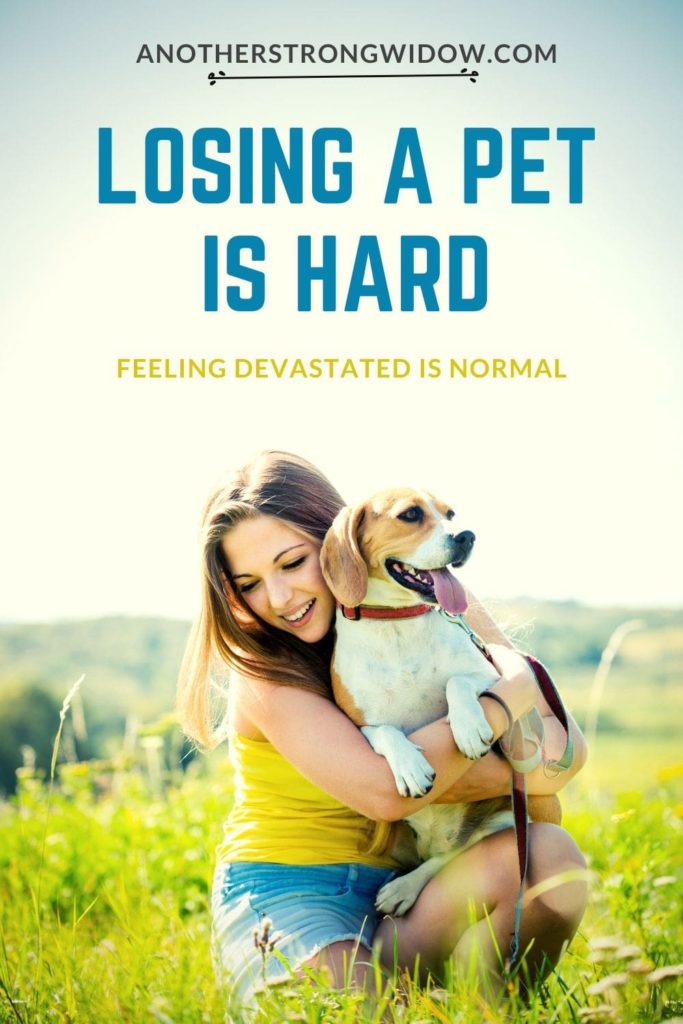
This post may contain affiliate links, which means I make a small commission from Amazon, at no extra cost to you, should you purchase any products using my link.
What Is It Like to Lose a Pet After a Spouse Dies?
This past week we experienced a loss in our household.
My son was given a red and blue betta fish for his second birthday in November of 2017.
Chomp Chomp came into our lives in a blue and white Coleman cooler. His spunky attitude and personable qualities landed him with more real estate than most of his pet store mates, I’m sure. With time he had friends join him in his 20-gallon tank, and he outlived many minnows and tetras.
When we purchased our first home, Chomp Chomp handled the move with ease. He had a good life nestled in the corner of the dining room, but those vibrant colours have faded from his fins.
Over the last year, I could see the age in his face as he came to greet me at the glass each time I walked by. His pouty upturned mouth, always waiting at the same corner of the tank as he asked to be hand-fed his specialty pellets.
I remember thinking, “geez this fish! I’m going to cry when the little guy finally meets the end of his fish-life.”
Well, that was all before Chris died.
How Does the Death of a Pet Compare to Losing a Loved One?
Shedding a tear for the death of a fish just doesn’t feel appropriate anymore. The loss pales in comparison to losing my husband and the children their father.
It is hard to comprehend that Chris died before our pet fish when you think about it that way and highlights how quickly life can change.
These considerations lead me down a rabbit hole of thoughts about grief. Can you even compare these types of loss events?
I believe each death hold’s its own place, and because one is “smaller” than another, it does not make it insignificant or minimize the loss. So why is Chomp Chomp’s death so emotionless for me now?
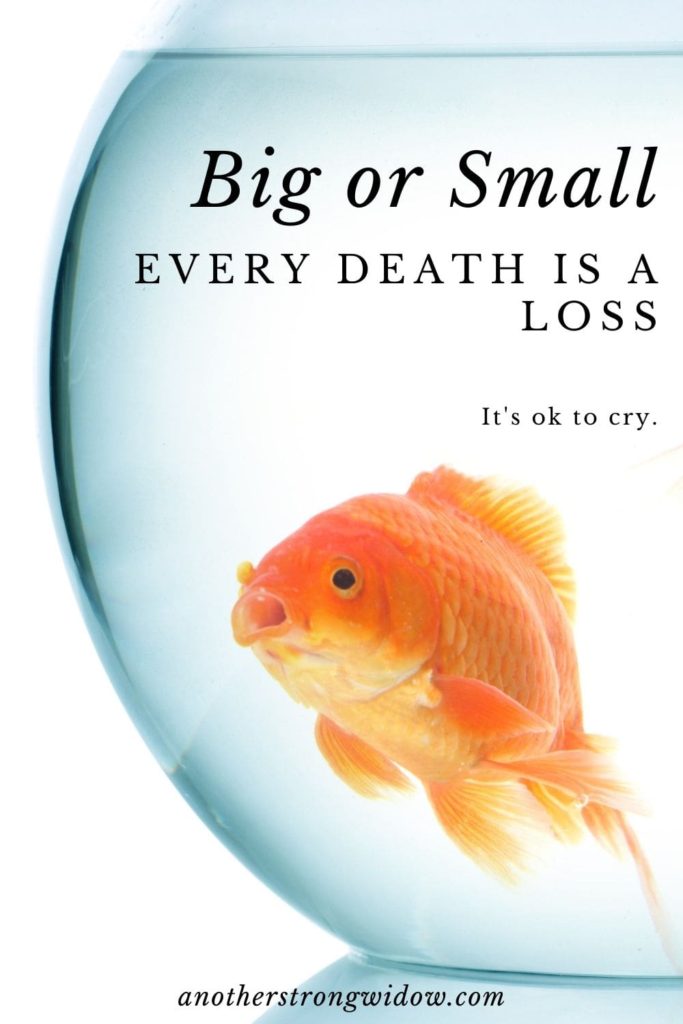
We place expectations on ourselves about how we “should” feel because society tends not to recognize grief felt by the loss of a pet in the same way as if a loved one leaves our lives.
Don’t Judge Someone Else’s Grief
The feelings associated with the loss of your dog may be very intense. The death of a furry companion may even be more difficult to process than the loss of a family member. That is ok and normal because we can form powerful bonds with our pets. Our communities do not provide the same support for grieving pet owners, and people tend to feel uncomfortable or embarrassed to share their feelings of grief after the loss of a pet for fear of being seen as weak or lacking maturity.
Of course, I can recognize that a fish does not provide the same level of companionship as a dog to most people. However, it is also essential to allow space for everyone’s feelings and recognize that you can not be the judge of someone else’s loss.
Perhaps this fish was a four-year old’s best friend and the only place they felt they could share their deepest feelings.
Is Losing a Pet Harder After You Have Lost Someone You Love?
Alternatively, do some losses have a more significant impact on a person because they have a compounding effect on top of one another? Losing a pet that you brought home with your late spouse is like losing another piece of them and the life that you had created together.
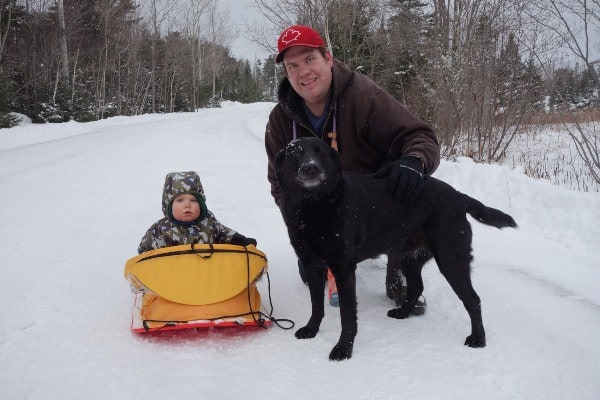
Chris with Lewis and our dog Emma.
The bottom line is that everyone’s experience is going to be vastly different, and there is no correct answer. Grief is unique to the individual, and it is also confusing and unexpected, coming in waves. Some weeks may feel numbing while others are emotion-filled, and the smallest occurrences can start a downward spiral. The way you react to the loss of a pet one day maybe the opposite in a few days.
Feeling Guilt After Loss
I admit that over the last year, my weekly cleaning schedule of Chomp Chomp’s fish tank has been a bit interrupted. I changed the Monday morning reminder that popped up on my phone weekly, to every second Monday, so that I could stop hitting the ignore button every single day, but even that revised schedule was not always maintained. I feel guilty and wonder if a freshwater infusion could have extended his life.
I had to tell the kids about Chomp Chomp’s death. Without hesitation, the words out of their mouths were, “time to get a new one tomorrow!” If only everything were that simple and solvable.
Somehow this death is easy for the children too.
I despise how commonplace death has become in our home. The children are more comfortable speaking about dying than I am or most people they meet. Frequently when we see a child with a parent, they want to know if the absent parent is dead. A mother duck with her duckings – Daddy Duck, must be dead.
Aunt Jenn (bless her), scooped Chomp Chomp from his resting place on the bottom of the tank and deposited him into a plastic bag. When I asked the children what we should do with the fish, Lewis said that he would like to put him with Dada.
Speaking to Children After a Pet Dies
It is essential to include the children in the death of our fish. So often parents want to “protect” their children and shield them from uncomfortable moments and the realities of life. I encourage you to be open and honest with your children; what they have imagined has happened may be worse than the actual truth.
Trust your children to handle the emotions, involve them in the fish disposal and use it as a teachable moment in preparation for death experiences to come later in their life. You can read more about how I have handled death with my children in my post, “How I Helped My Children Through Their Father’s Death.”
RIP Chomp Chomp (in the deep freezer for now), even your arch-nemesis Green Fish, is looking a little blue tonight.
We plan to give our finned friend a proper burial in the spring when the earth thaws up, and I feel like his legacy will carry on when his successor is also named Chomp Chomp.
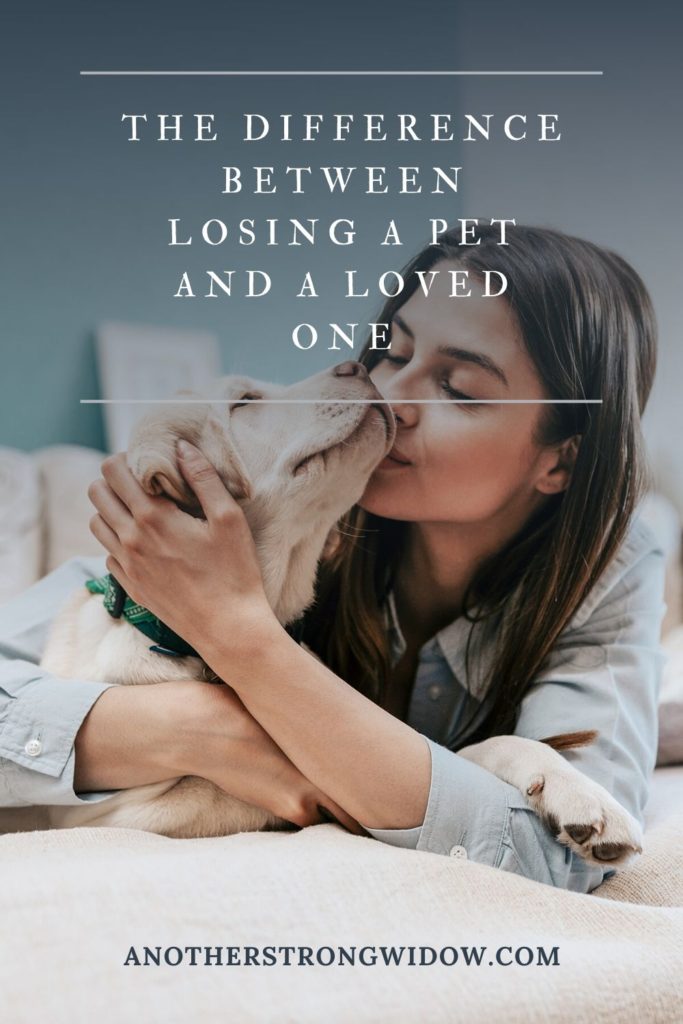
Tips for Your Grief
If you have lost a pet or a loved one, be gentle on yourself and provide the time that you need to heal.
- Mourning a loss is normal and healthy.
- Process your emotions in a way that works best for you; there is no right or wrong way to grieving.
- Any feelings, big or small, are acceptable to have.
- There is no time limit to your grief; it doesn’t need to be over by a specified period.
- If you are speaking with a child, stick to the truth.
The American Kennel Club hosts an online Facebook support group that you may find helpful if you have lost a canine companion.
What Has Your Experience With Pet Loss Been?
How has the death of a significant family member affected your response to the loss of a family pet?
Has it made you more or less sensitive when your furry companion passes away?

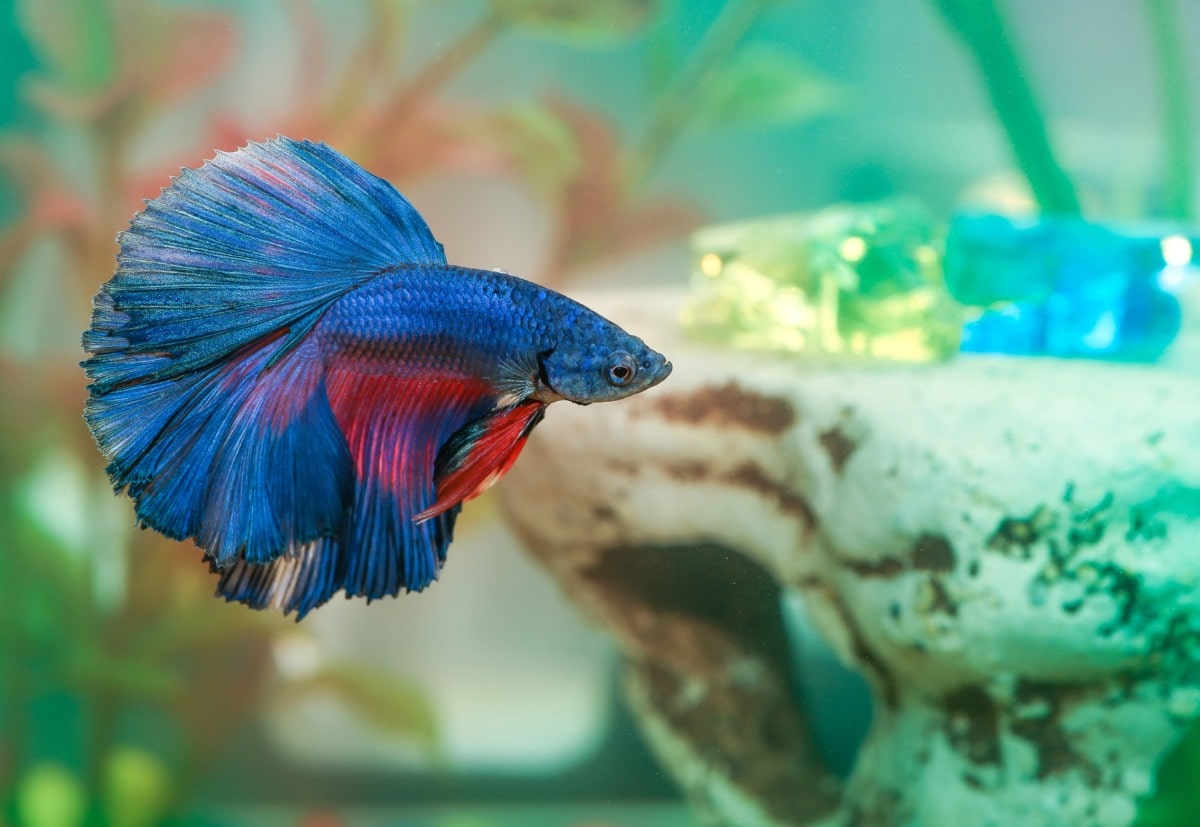


When my first cat died, I bawled for days. I was an adult at the time, but it was still my first real experience with grief. And then many years later, I also lost my son. And yes, the losses are incredibly different. They are also both valid. Thank you for writing this. Grief is grief is grief.
Thank you for sharing your experience Miranda, I appreciate this. Grief does play a part in each of our lives and has a profound impact. I am very sorry you have lost your son. Love to you.